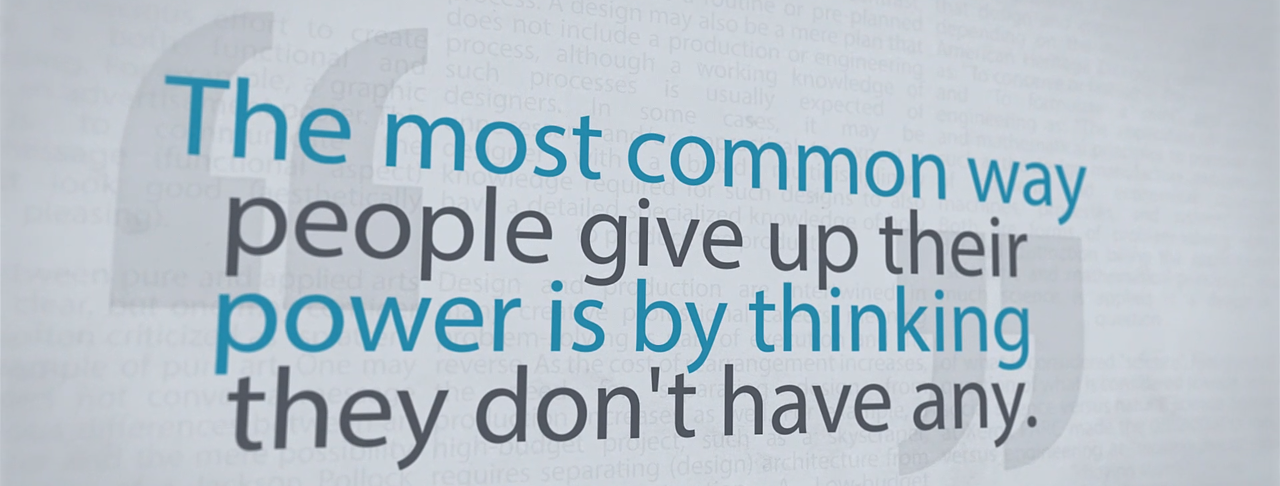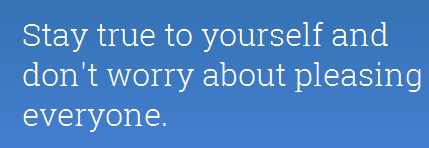Develop you mental strength by embracing these 13 habits.

Life is full with swings and various circumstances where one situation can be favourable and immediate after can be something challenging. People’s ability to life the life comfortably depends on the mental strength. Mental strength is all about capability of an individual to accept the circumstances and adaptable with various life situations be these to be favourable, unfavourable or adverse. One has to be mentally strong to have control on emotions, sentiments, thoughts, behaviour in various situations in life.
In this write up I will share some essential steps required for all to develop strength of mind which is necessary to live the life which is full with variations and changes. Here we go –

Feeling sorry about ourselves – Feeling sorry about ourselves is self destructive step. Many people feel guilty for a wrong step in life and this guilt permanently gets affixed in our minds and we are not able to focus on various ongoing situations. Admitted, that one can do very big blunder in life but instead of controlling the situation and trying to move out of it if we continuously blame and curse ourselves for something, life will be pushing us back which we cannot catch up with again. Accept your mistake and better to minimize the harmful effects of that.
Don’t shy away from changes – Even ‘Narayan Shanker’ (Amitabh Bachan character in Mohabbtein) became adaptable with changes so why we cannot. Changes in life can be challenging but shying away to accept changes prevents growth. Longer we wait harder the situation gets and people will outgrow us. Better to be open for changes instead of people surpassing us. When we see others moving ahead of us, negative thoughts occupy our mind, so better to keep these away.

Don’t give away your power – People give away their power when they feel that they lack physical and emotional boundaries. Everyone is born with a natural power to draw a line of success. All we need to stand up for ourselves and draw the line when necessary. If other people are in control of our actions, they define our success and self-worth. It’s important that we keep track of your goals and work toward them. Oprah Winfrey, an American media proprietor, talk show host & actress, is a perfect example of someone with a strong grip on their power. Winfrey grew up dealing with poverty and sexual abuse, but “she chose to define who she was going to be in life by not giving away her power.”
Don’t focus on things we can’t control – We see around lots of things happening which might or might not linked with our lives. It feels so safe to have everything under control, but thinking we have the power to always pull the strings can become problematic. Expecting everything in life to have our control is like to be more prone to anxiety. Shifting our focus off the things we can’t control can create increased happiness, less stress, better relationships, new opportunities, and more success.

Don’t worry about pleasing everyone – Often we judge ourselves by considering what other people think of us, which is the opposite of mental toughness. Four facts about constantly trying to be a people-pleaser: It’s a waste of time; people-pleasers are easily manipulated; it’s OK for others to feel angry or disappointed; and you can’t please everyone. Dropping your people-pleasing mindset will make you stronger and more self-confident.
Don’t fear taking calculated risks – People are often afraid to take risks, whether it’s financial, professional, personal, social or business-related. But it comes down to knowledge, lack of knowledge about how to calculate risk leads to increased fear. While deciding something, many risks are attached with the decision. To better analyze a risk, ask yourself the following questions –
- What are the potential costs?
- What are the potential benefits?
- How will this help me achieve my goal?
- What are the alternatives?
- How good would it be if the best-case scenario came true?
- What is the worst thing that could happen, and how could I reduce the risk it will occur?
- How bad would it be if the worst-case scenario did come true?
- How much will this decision matter in five years?

Don’t dwell on the past – The past is in the past. There’s no way to change what happened, and “dwelling can be self-destructive, preventing you from enjoying the present and planning for the future. It doesn’t solve anything, and can lead to depression. There can be a benefit to thinking about the past by reflecting on the lessons learned, considering the facts rather than the emotions, and looking at a situation from a new perspective can be helpful.
Don’t make the same mistakes over and over – Mistakes can be made in life but important is these do not happen repeatedly especially. It’s important to study what went wrong, what we could have done better, and how to do it differently in our next attempt. Mentally strong people accept responsibility for the mistake and create a thoughtful, written plan to avoid making the same mistake in the future.
Don’t resent other people’s success – Resentment is like anger that remains hidden and bottled up. Focusing on another person’s success will not make the way to our own, since it distracts us from our path. Even if we become successful, we may never be content if we were always focusing on others. We may also overlook our talents and abandon our values and relationships.

Don’t give up after the first failure – Success isn’t immediate, and failure isn’t for forever. Walt Disney, Abraham Lincoln, Thomas Edison and many names can be mention who tasted failures but their persistence and patience opened the blocked ways of success. Thinking that failure is unacceptable or that it means you aren’t good enough does not reflect mental strength. In fact bouncing back after failure will make us stronger.
Don’t fear alone time – Creating time to be alone with your thoughts can be a powerful experience, instrumental in helping you reach your goals. Becoming mentally strong requires you to take time out from the busyness of daily life to focus on growth. Here are some of the benefits of solitude –
- Solitude at the office can increase productivity.
- Alone time may increase your empathy.
- Spending time alone sparks creativity.
- Solitary skills are good for mental health.
- Solitude offers restoration.
Don’t feel the world owes them anything – It’s easy to get angry at the world for your failures or lack of success, but the truth is no one is entitled to anything. It must be earned. Life isn’t meant to be fair. If some people experience more happiness or success than others, that’s life, but it doesn’t mean you’re owed anything if you were dealt a bad hand. The key is to focus on your efforts, accept criticism, acknowledge your flaws, and don’t keep score. Comparing yourself to others will only set you up for disappointment if you don’t receive what you think you’re owed.
Don’t expect immediate results – A willingness to develop realistic expectations and an understanding that success doesn’t happen overnight is necessary if you want to reach your full potential. Mentally weak people are often impatient. They overestimate their abilities and underestimate how long change takes, so they expect immediate results.
It’s important to “keep your eyes on the prize” and relentlessly work toward your long-term goals. There will be failures along the way, but if you measure your progress and look at the big picture, success will become attainable. Wake up, tell yourself who you are and what you have to do which is achievable with a blueprint of your task. It will be done and you will fill at the peak of the world. Congratulate yourself and tell yourself – What’s next.

 Currency Convertor
Currency Convertor Post an article
Post an article Covid19 Updates
Covid19 Updates Abhishek Sharma
Abhishek Sharma





 sending...
sending...




